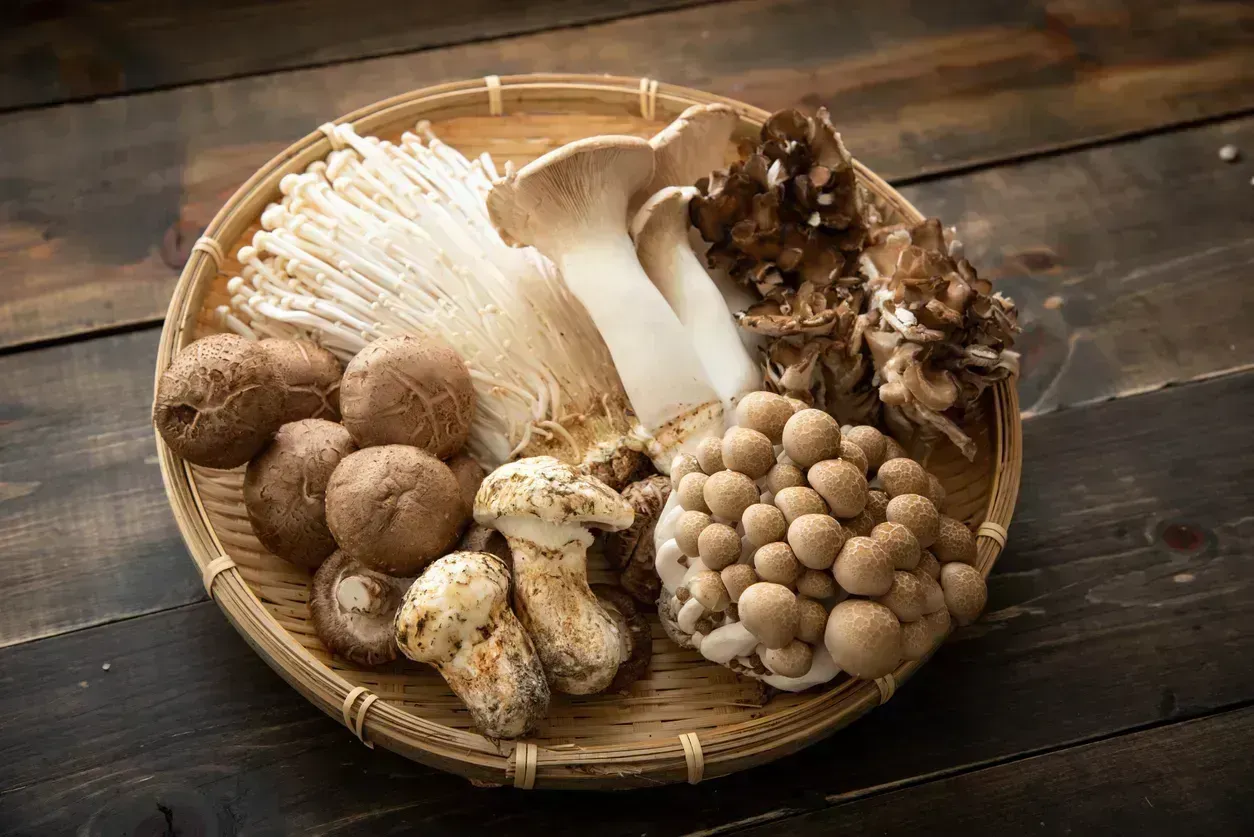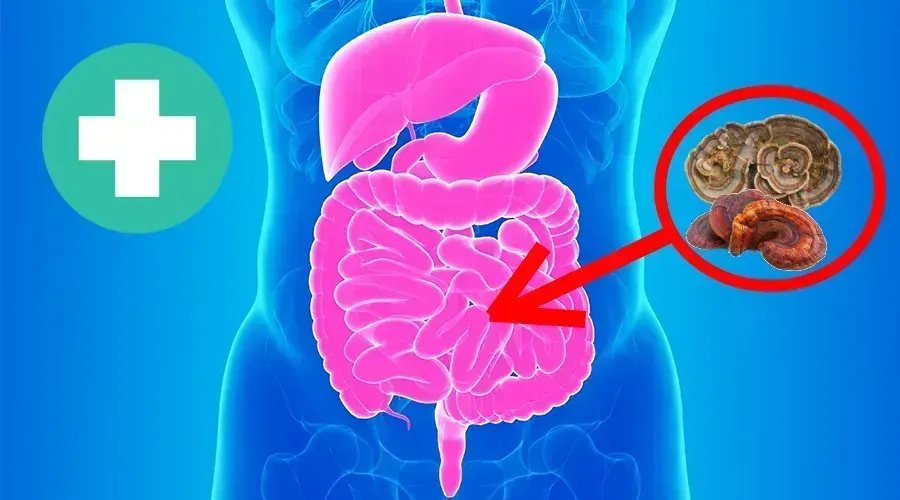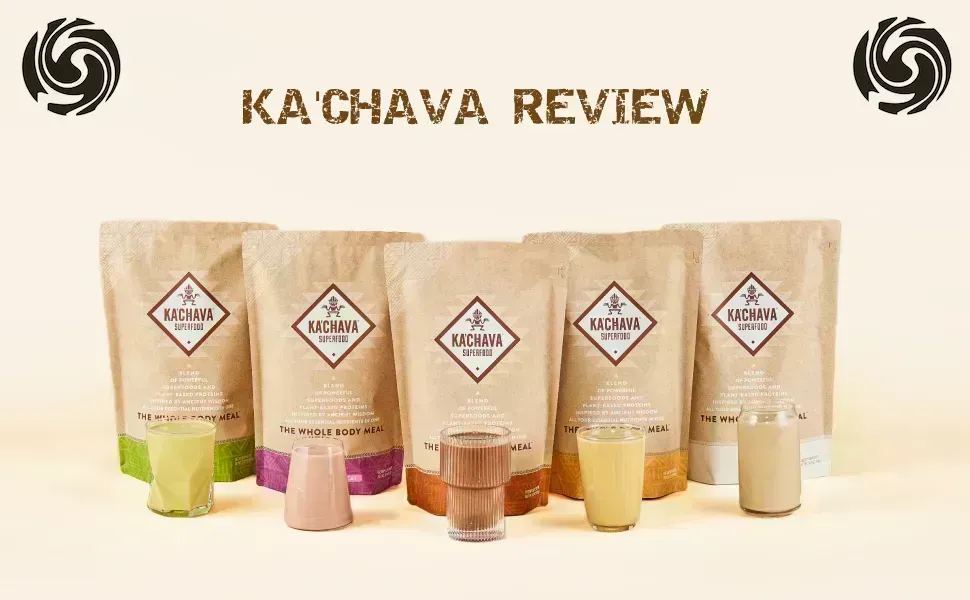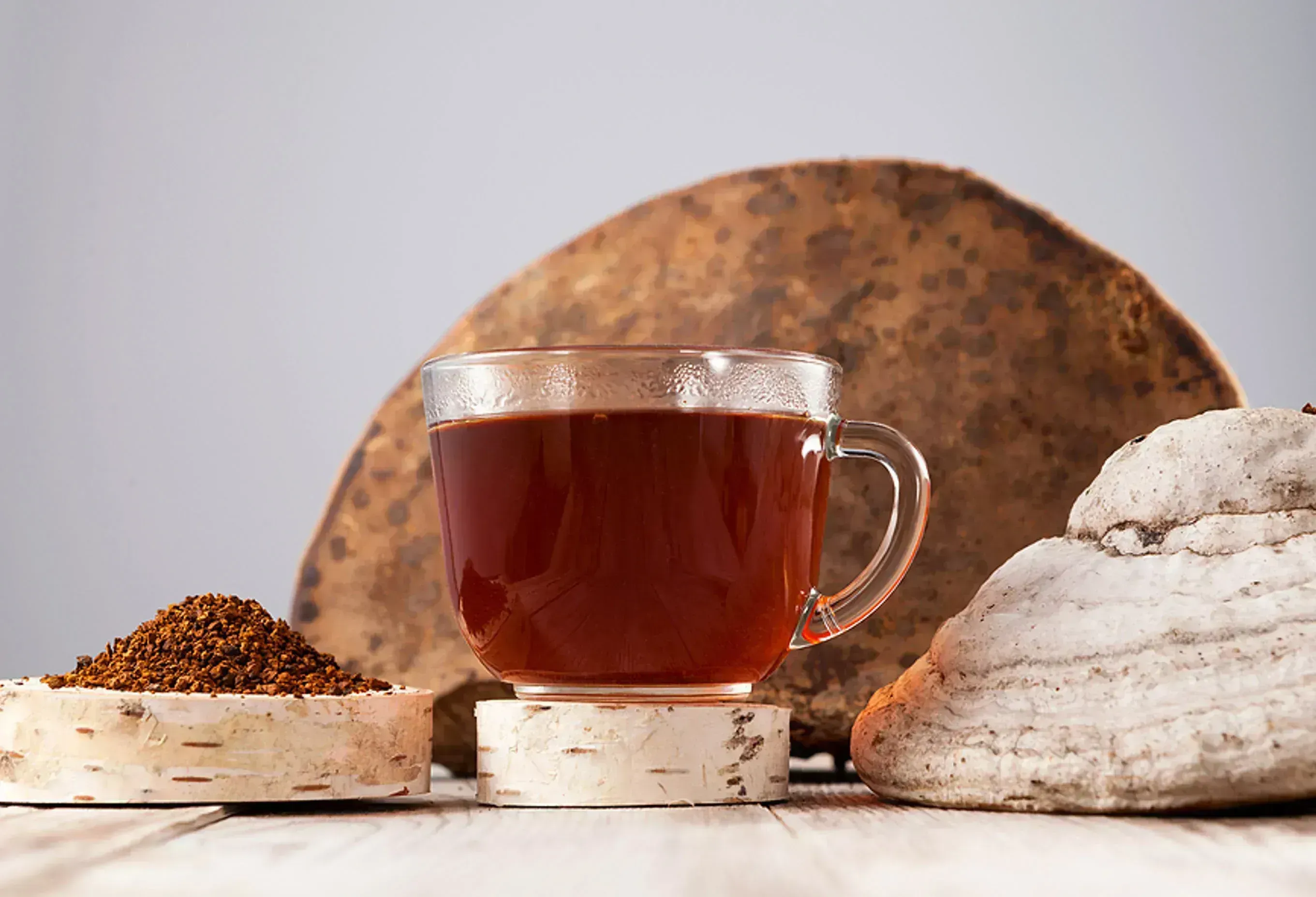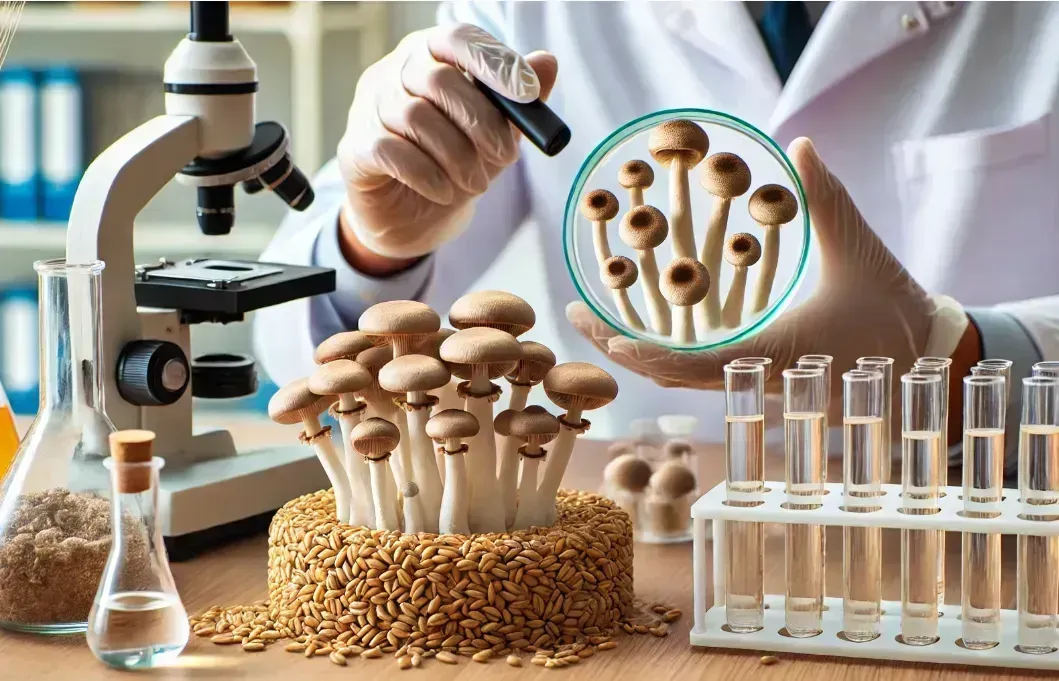As of recently, mushroom extracts have become quite popular in the supplement industry, drawing in more and more people into the health and wellness world. With this ever growing market gaining so much success from it, the competition has grown ever larger. So this is why the people at fungi review urge people to pay attention to the supplement facts, because it can give away the quality and the effectiveness of such supplements.
Mushroom Extract Vs Powder: What Are Mushroom Extracts?
Mushroom extracts are the concentrated form of various types of mushrooms. The main goal of extraction is to make the mushroom more effective by turning it into a concentrate. There are many different methods of extractions like: hot water extraction, alcohol extraction or a combination of both. The beneficial compounds found in mushrooms are beta glucans, triterpenoids, antioxidants and other bioactive properties. However, whole mushroom powders provide a broader nutritional spectrum, including higher levels of B vitamins.
The uses for the extracts vary from:
Medicinal: Mushrooms possess a lot of anti-inflammatory effects and also the ability to fight off certain diseases and chronic illnesses.
Dietary Supplements: Mushrooms can be used in supplements in form of powders, capsules or tinctures. They are meant to support overall health and wellbeing
Cosmetic: Some mushrooms are beneficial for skin, hair and nail health.
Culinary: The nutritional value of mushroom cannot be ignored so adding mushroom extracts to meals can be beneficial.
What is Whole Mushroom Powders?
Mushroom powder is the dried version of the mushroom that is then grounded into a very fine powder. The powder can then be mixed in any beverage or meal. Each mushroom has its own nutritional value and uses depending on their health benefits. For example, cordyceps sinensis has a unique nutritional profile where beta-glucans are predominantly concentrated in the mycelium. Mushroom powders are excellent sources of fiber, vitamins, protein and iron.
Important Distinction:
Whole mushroom powder shouldn’t be confused with mushroom extract powder. The former involves grinding the entire mushroom, while the latter refers to powdered concentrate produced through extraction (e.g., hot water or alcohol). Whole mushroom powder may not be as effective in delivering bioactive compounds like beta-glucans compared to extracts, as these beneficial compounds are locked inside the tough cell walls of the mushroom fruiting body. Therefore, extraction methods are necessary to make these compounds bioavailable.
Whole Mushroom Powder Production Process
-
Harvesting: Mushrooms are harvested at their peak potency.
-
Drying: Mushrooms are carefully dried to preserve their nutrients and bioactive compounds.
-
Grinding: The dried mushrooms are finely ground into a powder.
-
Packaging: The powder is packaged in airtight containers to maintain freshness and potency.
Benefits of Extracts
The research on these benefits is not quite there yet so this is mostly based off of user reviews. Additionally, powdered mushrooms, while offering a valuable functional food option for pets, can contain non-medicinal compounds and require larger doses for therapeutic effects compared to liquid mushroom extracts. They also face practical challenges such as degradation and clumping, but well-manufactured powdered mushroom extracts can still be beneficial.
1. Immune System Support
-
Immune Modulation: Reishi, shiitake and turkey tail mushrooms have beta-glucans that stimulate immune cells like macrophages and natural killer cells.
-
Antiviral and Antibacterial: Some mushroom extracts have antimicrobial properties to help the body fight infections.
2. Anti-Inflammatory
-
Inflammation Reduction: Reishi and chaga mushrooms have anti-inflammatory compounds to help manage chronic inflammation and conditions like arthritis and asthma.
3. Antioxidant
-
Cell Protection: Chaga and maitake mushroom extracts are rich in antioxidants that protect cells from free radical damage to reduce chronic diseases.
4. Cognitive
-
Brain: Lion’s mane mushroom is known to improve cognitive function, memory and nerve health by stimulating NGF production.
5. Energy and Endurance
Energy: Cordyceps sinensis mushroom is said to increase energy, stamina, and athletic performance by increasing oxygen uptake and ATP production in cells.
6. Heart
-
Cholesterol Reduction: Reishi and shiitake mushrooms can lower LDL cholesterol to support heart health.
-
Blood Pressure: Reishi mushroom has been studied for blood pressure regulation.
7. Blood Sugar
-
Glycemic Control: Some mushroom extracts can stabilize blood sugar levels for diabetics or those who are pre-diabetic.
8. Liver
-
Detoxification: Reishi and chaga mushrooms are liver protective to help detox and support liver function.
9. Skin
-
Wound Healing: Reishi mushroom compounds promote wound healing and skin health.
-
Anti-Aging: Antioxidants in mushrooms protect skin from environmental damage and reduce aging
Key Differences in Benefits:
-
Bioavailability: Mushroom extracts generally offer higher bioavailability because the extraction process breaks down the cell walls, making bioactive compounds like beta-glucans more accessible to the body. In contrast, whole mushroom powder may contain more nutrients, but the body may have a harder time absorbing them.
-
Potency: Mushroom extracts are typically more concentrated, providing a stronger dose of the active compounds per serving, which is ideal for those looking for specific therapeutic benefits.
-
Convenience: Powders are often easier to incorporate into daily meals, such as smoothies, coffee, or soups. Extracts, especially in tincture or capsule form, are more convenient for on-the-go use.
Extraction methods
-
Hot Water Extraction:
-
Process: Boil the mushrooms for several hours to extract water-soluble compounds like polysaccharides (e.g., beta-glucans) and some proteins.
-
Uses: For medicinal mushrooms like reishi, shiitake and maitake.
-
Pros: Good for immune-boosting polysaccharides.
-
Alcohol (Ethanol) Extraction:
-
Process: Soak the mushrooms in alcohol to extract alcohol-soluble compounds like triterpenoids, sterols and some antioxidants.
-
Uses: For reishi and chaga mushrooms to get compounds that hot water extraction can’t.
-
Pros: Suitable for extracting different bioactive compounds.
-
Dual Extraction:
-
Process: Combine hot water and alcohol extraction to get a broad range of compounds. First extract with water then extract the left over with alcohol.
-
Uses: Get a comprehensive extract that includes both water-soluble and alcohol-soluble compounds.
-
Pros: Maximizes the extraction of all beneficial compounds from the mushrooms.
-
Fermentation:
-
Process: Ferment the mushrooms with specific strains of bacteria or yeast. Fermentation can break down the cell walls of the mushrooms making the compounds more bioavailable.
-
Uses: Can be used for any mushroom and thought to enhance the bioavailability of certain nutrients and compounds.
-
Pros: May increase the potency and effectiveness of the extract.
-
Supercritical CO2 Extraction:
-
Process: Use supercritical carbon dioxide as a solvent to extract non-polar compounds like lipids and some bioactive compounds. This process occurs under high pressure and low temperature.
-
Uses: For extracting delicate compounds without heat which can degrade some compounds.
-
Pros: Produces high-purity extracts without residual solvents.
-
Cold Water Extraction:
-
Process: Similar to hot water extraction but done at lower temperature to preserve certain heat sensitive compounds.
-
Uses: For extracting certain polysaccharides and other compounds that may degrade at higher temperatures.
-
Pros: Retains heat sensitive nutrients and compounds.
Each extraction method has its own pros and cons and is chosen based on the compounds and mushrooms being used.
Common Mushrooms Used in Extracts
-
Reishi: Immune boosting and stress relief.
-
Lion’s Mane: Cognitive enhancement and nerve health.
-
Chaga: Contains antioxidant properties.
-
Cordyceps: gives a boost in energy and athletic performance.
-
Turkey Tail: Immune support.
-
Shiitake: Immune support and nutrient rich.
-
Maitake: Immune system support and weight management.
How to Choose the Right Mushroom Supplement
-
Check for Beta-Glucan Content: As mentioned earlier, look for products with at least 20% beta-glucan content. This is a key indicator of quality and effectiveness.
-
Third-Party Testing: Ensure the supplement has undergone third-party testing for contaminants like heavy metals, pesticides, and molds. Brands that share their lab results are generally more trustworthy.
-
Source of Mushrooms: Always choose supplements that use mushrooms grown in clean environments and, where possible, organically farmed. Some brands, like Host Defense, focus on sustainable harvesting practices.
-
Extraction Method: The method of extraction (hot water, alcohol, dual) matters because it determines the potency of the extract. For immune benefits, choose hot water extracts. For cognitive and stress-relief benefits, consider alcohol extracts.
Popular Mushroom Extract Products
These two brands below pride themselves in having 100% fruiting bodies in their mushrooms supplements ensureing the highest potency and qualiy of proudct.
-
FreshCap Mushrooms: Known for their potent mushroom extracts, including Lion’s Mane, Reishi, and Cordyceps.
-
Four Sigmatic: Known for its mushroom coffees and elixirs, which contain extracts like Lion’s Mane and Chaga.
Beta Glucans
Beta Glucans are found in Mushroom extracts and this can be a give away if the mushroom extract process of a product is good or not. The amount of beta glucan should usually be 20% or more anything lower than that should indicate that the product isn't that good. If the amount is not stated at all this means it either has none or has not been disclosed or tested. Beta-Glucans are a very beneficial bio-active compound in mushrooms; it can enhance immune system support, reduce cholesterol, regulate blood sugar, improve skin health and digestive health.
Safety
When deciding to trust a health and wellness brand for mushroom supplements it is always advisable to see if you have access to any information regarding harvesting or ingredients. The organic label on mushrooms doesn't take into consideration the heavy metals included into the harvesting process. Lastly, what's most important is not to take mushroom extracts if you are pregnant or breastfeeding, and without consultation with a health professional if you are already on medication. If you want to make more informed decisions on choosing the right product take a look at our How to identify trustworthy supplements guide!
Which is Better
Whole mushroom powder is good if you are focussed on dieting, because it's nutrient dense, it may make you feel full easier compared to other methods. It can also be good for those who aim to eat healthy and focus on a balanced meal. Extracts however are better if you want the specific health benefits the mushrooms provide, for example a Lion’s Mane extract may be good for those who want a boost in focus and memory. In my personal opinion I believe extracts are better since they can be tailored to a vast majority of needs from hair health to improving sleep.
It’s good to remember that the benefits promised from the extracts are not 100% guaranteed and it relies heavily on individual variability.
